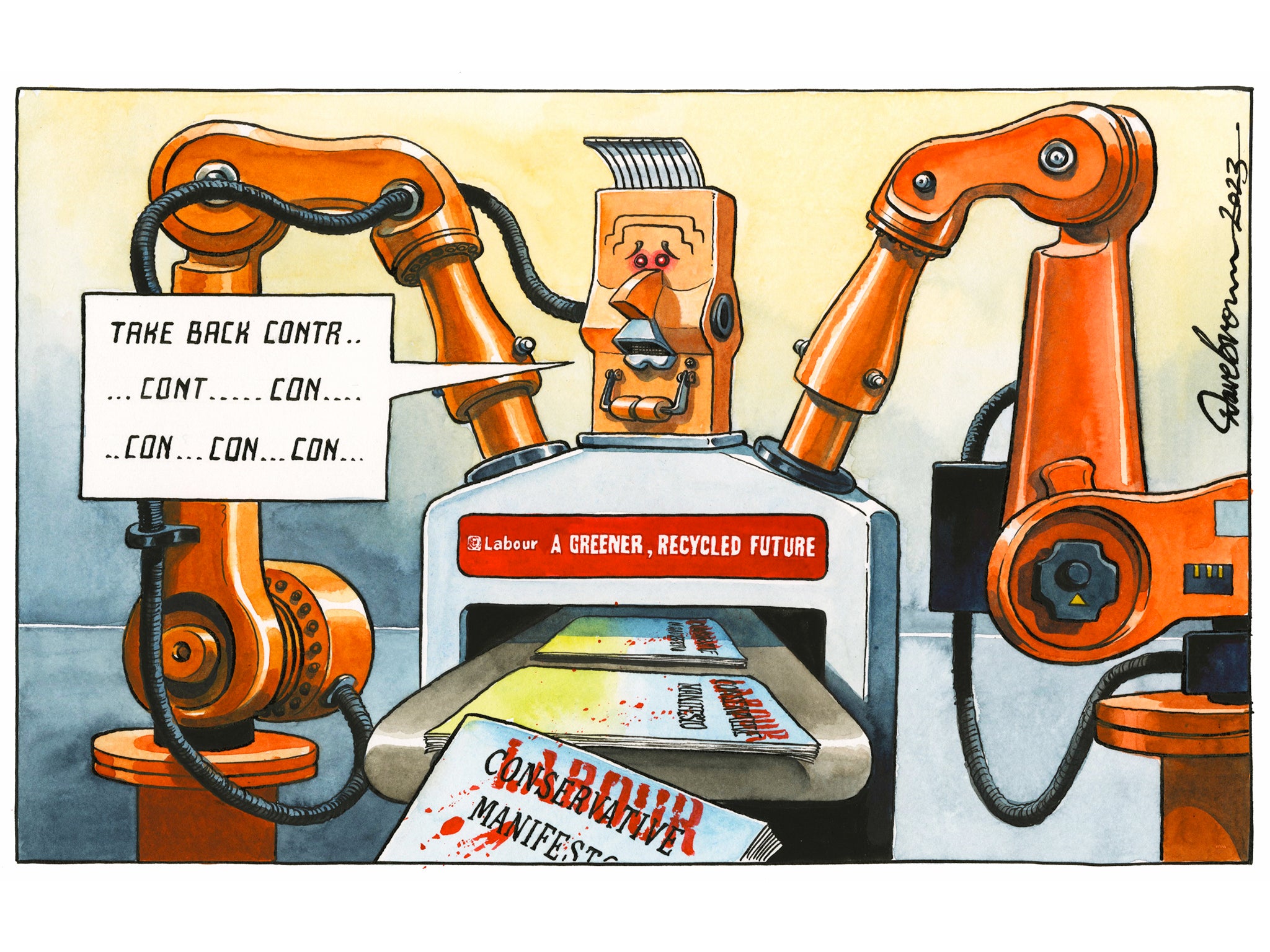Keir Starmer failed to answer the central question for Britain in the 2020s
Editorial: Without investment, productivity – and the economy as a whole – cannot begin to escape the current stagnation

It was smart for Sir Keir Starmer to try to steal the old Brexiteer line of “take back control” and use it to highlight the Tories’ own failure to revitalise and “level up” the “left behind” areas – that is, if he can pull it off.
The past few years of pandemic, post-pandemic and Brexit-related disruption have not matched the high hopes raised in the 2016 referendum or the 2019 general election. Boris Johnson’s overheated, boosterish rhetoric looks rather sickly now.
The government can hardly be blamed for a virus that emerged in Wuhan and wrecked lives and the world economy, but the Conservatives can be fairly judged on their near 13 years in office, their response to the various crises the nation has faced, and the priorities they set themselves. A mixed record, then, and latterly characterised by incompetence, chaotic infighting, and too much sleaze.
The public, wherever they live, are right to feel disappointed – particularly those, principally in the North and the Midlands, who were promised the most change. In his speech, the Labour leader namechecked Burnley, Wolverhampton, Grimsby and Swindon – and it’s no accident that they lie in key political battlegrounds. These seats represent the people Labour lost in 2019, who need to be more firmly committed to voting Labour at the next election. That said, the poll leads may overstate Labour’s strength, given a large proportion of “don’t knows” and Rishi Sunak’s relatively strong personal ratings against Sir Keir.
Hence the promise: “It’s not unreasonable for us to recognise the desire for communities to stand on their own feet. It’s what ‘take back control’ meant ... So we will embrace the ‘take back control’ message, but we’ll turn it from a slogan into a solution, from a catchphrase into change.”
But will he? One of the failings of government in Britain in recent decades has been to mistake passing a law for effecting social change. The latter does not necessarily follow from the former; if it did, Britain would have abolished want and poverty long ago, the Channel-crossings crisis would be over, and strikes would be a thing of the past.
Sir Keir’s “taking back control” bill, promised for his first King’s Speech as prime minister, will devolve powers over transport, employment support, energy, climate change, housing, culture, childcare provision and council funding, and will give communities the “right to request powers which go beyond this”.
All very laudable, and perfectly commendable: decisions about such matters are better made close to the action. But the new powers are worth much less to those communities, whether left behind or even relatively prosperous, without the resources to match the ambition. In a nation beset by a shortage of labour, public money and economic growth – and with Labour committed to a new prudence with the public finances – nothing much will improve, wherever decisions are to be taken.
As with the prime minister’s speech that preceded it, Sir Keir’s address failed to answer the more central question for Britain in the 2020s: where will the growth come from? The farce of the Truss premiership seems to have discredited the concept, but sustainable economic growth remains key. It will fund the good-quality public services everyone wants, the innovation Mr Sunak rightly identified as vital, and the green transformation that can only be implemented with a surge in investment, both public and private.
Without investment, productivity – and the economy as a whole – cannot begin to escape the current stagnation. Living standards, in terms of both private consumption and those critical public services, will continue to be squeezed. And it seems painfully obvious to many that British growth cannot make that step change without much closer economic ties to the European Union.
It is deeply ironic that one of the most passionate Europeans in British politics today should now choose to abandon much of that cause, and instead turn to the bogus and discredited promises of the Leave campaign. Britain won’t be transformed by giving people such as Andy Burnham and Andy Street more powers over the buses and schools in their regions, good idea as that may be. It will only happen when the trend in the rate of investment is moved back onto the upward path it was following before 2016, after which it flatlined. That wasn’t a coincidence, and Sir Keir knows it.
Join our commenting forum
Join thought-provoking conversations, follow other Independent readers and see their replies
Comments
Bookmark popover
Removed from bookmarks